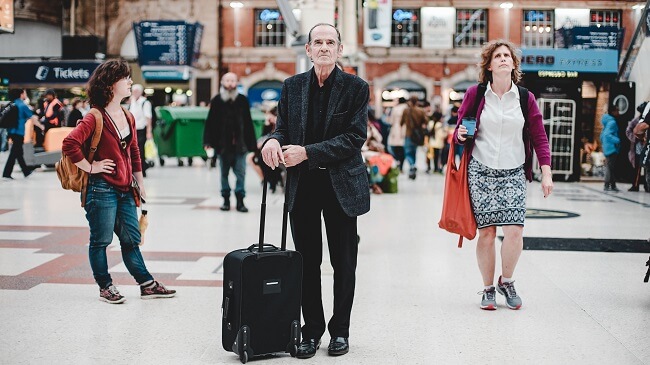
photo cred. Evan Dennia on unsplash
“Why did this happen? I can’t believe it! Who can I talk to? Who could possibly understand what we’re going through?” My husband had no anwers. Our 23 year old daughter was in her third rehab. Self-harm, mental afflictions, and thoughts of suicide had plagued her for years. All our efforts to help had failed. Disheartened, full of guilt and shame, we wondered where we could find the kind of support we needed.
Parents who suffer over the destructive behaviors and choices of their teen-to-adult children long to find someone they can talk to; someone who is willing to be a companion as they walk their lonely, painful path. The list of troubles they might encounter is long. We read about them on the internet and in newspapers. Talking about our troubles is risky. We shudder and attempt to hide the awful truth.
My husband and I know…we’ve walked this soul-crushing path for a long time. Having no one to talk to made us hurt even more than we already did.
Are you on a painful, lonely journey with one or more of your children?
A Question to Ask
Your hurt runs deep. You long for someone to share with. If I don’t find a way to let out my bottled up emotions, I’ll explode. But who can you entrust your intimate, most embarrassing family secrets with? Who will listen well, suspend judgement, and keep a confidence?
Start with asking yourself, “Who can carry my suitcase?”

photo cred. Abi Ismail on unsplash
The suitcase question came from a story I once read about a father of two daughters:
One day, a father gave his older daughter the talk about “the birds and the bees”. The younger daughter overheard parts and became curious. After her sister left, she went to her father, “When will you give me this talk?” But he brushed her off, changing the subject.
After several days, the father and younger daughter went on a train ride to visit family. The father put their two large suitcases in the overhead compartment. When they reached their destination, there hadn’t been much conversation between them. The father asked her, “Will you please reach up and get our suitcases down?”
“Daddy, I can’t! They’re too heavy. They might fall on me and hurt me!” The father picked her up and lovingly placed her on his lap. He spoke with deep affection and gentleness. “You’re right, my child. I love you very much and I’d never ask you to carry something too heavy, something that could hurt you. For this reason, I need you to trust me. I’ll have the talk about sex with you when I think you’re old enough and strong enough to handle it.”
What does this story have to do with finding a safe person to share with?
Beyond their Capacity
Let me explain.
When our daughter’s troubles became more serious, we had no idea who we could to talk to. No one we knew was going through anything similar. Most of our family, friends, and co-workers had younger children or none at all. They listened with empathy, but couldn’t understand.
Other friends had older teens with no problems. With pride, they’d brag about their marvelous kids and their accomplishments. We, by contrast, were dealing with rehabs and psych wards. What a conversation stopper. Those friends listened and cared, but couldn’t relate or respond in a helpful way.
Sadly, a few pulled away and rejected us. Their reaction intensified our suffering. Did they secretly blame us for our daughter’s problems? Maybe. For whatever reason, they weren’t able to carry our suitcase. The weight of our emotional burden was too heavy. This wasn’t their fault. They didn’t intend to be cruel.
Our pain was simply beyond their capacity.
Not everyone can carry our suitcase.
Has this been your experience? If it has, I’m sorry. Asking the suitcase question isn’t a flawless solution, but can be a good place to start. Let’s add on a few tips to consider when looking for your suitcase-carriers.
5 Ways to Find Safe People (Suitcase-Carriers)

- Be cautious with parents of younger or perfect children. Their experiences limit their ability.
- Look for empty nesters; parents whose children are grown. They’ve probably been through some challenges and have a lot of wisdom to pass on.
- Start small. Invite the person to coffee and share a little of your story while watching for red flags. Do they preach, look shocked, or give pat answers? Do they make you feel uncomfortable or judged? If yes, stop. Don’t share any more.
- Look for people who have suffered trials and held on to their faith: illness, divorce, a prodigal, or loss of any kind. They’ve been tested and tried. They tend to be better listeners; more accepting, and compassionate.
- Attend a support group. You’ll meet people going through something similar. If you need help finding one or would like help starting one, please contact me. We can help.
I wish I had known these five tips sooner. My hope is that you’ll be wiser than I was, able to protect your heart from greater hurt.
*** What helped you find your suitcase carriers? What would you add to my list? Please share in comments. I’d love to hear from you!
Resources
The Bible:
Dear brothers, take note of this: Everyone should be quick to listen, slow to speak … (James 1:19).
A Book: When I Lay My Isaac Down, Carol Kent
*today’s post is from the archives

What wisdom! Thank You.
Thank you, Kathy and God bless you with his comforting presence.
So helpful! I appreciate what you share. Your blog is often a place I visit when I’m in pain and I’m never disappointed. God bless you!
Thank you Nic. I’m so glad that you’re not disappointed when you come here with your pain. May God meet you in it with His comforting presence and hope-filled words of truth.
Never alone in our pain.
Dena